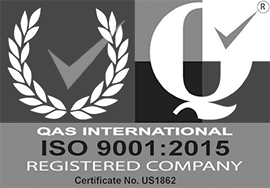Why Choose Soldy Die Casting For Parts And Components?
Advantages of Aluminum Die Casting
Aluminum Capabilities
The die casting process offers many benefits versus other methods of designing and manufacturing parts and components. Among the most important advantages of die casting:
Consistency. Die casting produces finished products that are virtually identical.
Corrosion Resistance. Our aluminum die cast parts can be made with a standard or high level of corrosion resistance depending on your application.
Cost Effectiveness. One of the key advantages of the die casting process is that production rates are much faster than most other mass-production fabricating processes — greater efficiency generally translates into a lower cost-per-unit.
Precision. Our technologically advanced machinery is capable of maintaining extremely tight tolerances, even for parts with complex shapes.
Quality. Die casting produces finished products that are dimensionally stable, dimensionally accurate and extremely durable. One of aluminum alloy’s strengths is that finished products can be made smoother than what can be accomplished through sand casting.
Strength. One of the benefits of die casting is that it produces parts that are one piece. This means there are no welds, fasteners or threads to deteriorate, come loose, or break. The monolithic structure of die cast parts also makes costly and time-consuming assembly and secondary machining operations unnecessary.
Versatility. Die casting can produce finished parts with various textures and coatings.

Die Casting Versus Other Processes
Forging. Die cast parts have tighter tolerances and can have more complicated shapes and thinner walls.
Plastic Injection Molding. Die cast parts have tighter tolerances, are more durable, and have greater resistance to both high and low temperatures.
Sand Casting. Die casting is faster, less labor-intensive, and can produce parts with thinner walls.
Screw Machining. Die casting has higher production rates and can produce parts in a greater range of shapes and sizes, with tighter tolerances and less waste.
Stamping. Die casting is capable of more complicated shapes, requires no assembly, and produces less waste.
Our engineers are happy to help you get started or answer any questions you have about our aluminum die casting capabilities.


